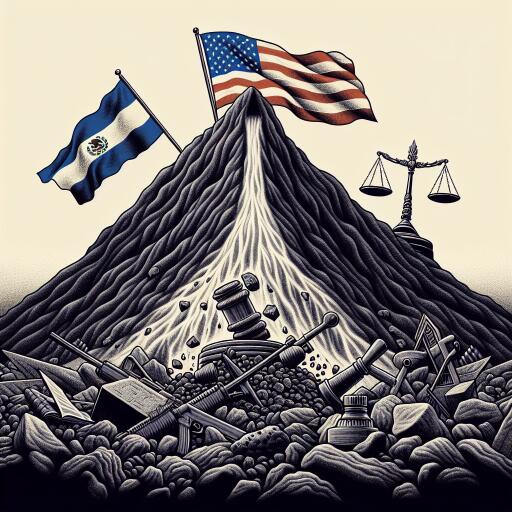Bukele Secures Historic Victory in El Salvador With Gang Crackdown
In an electoral triumph hailed as one of the most significant in recent global history, Nayib Bukele has been re-elected for a second presidential term in El Salvador, receiving an overwhelming mandate from voters who approve of his stringent policies against gangs.
According to the electoral authority’s report, having counted 70% of the ballots, Bukele secured approximately 83.1% of the votes, leaving his closest competitor trailing with just 6.9%. This landslide victory was not confined to the presidency, as Bukele’s party also clinched 58 out of 60 seats in congress.
Addressing his supporters from the national palace’s balcony, Bukele remarked on the decimation of the opposition and underscored the emphatic nature of his victory. “The people of El Salvador spoke, and they didn’t just speak loud and clear, but in the most convincing fashion in the history of democracy,” he asserted, marking his appearance with the 1980s hit “It’s the End of the World As We Know it,” by U.S. rock band R.E.M.
Bukele’s tenure has been notably distinguished by the implementation of emergency powers to incarcerate alleged gang members, a move that has resonated positively with many voters due to the significant decrease in crime. El Salvador, once notorious as one of the most violent countries in Latin America, reported a historic drop in homicides last year. Despite these successes, some human rights organizations have raised concerns regarding due process and the potential wrongful imprisonment of innocent individuals.
Bukele’s aggressive anti-crime strategy has inspired leaders across the region, from Honduras to Peru, to adopt similar measures amid escalating violent crime. Additionally, the stringent policies have led to a reduction in the number of Salvadorans apprehended at the U.S. border, thereby spotlighting the broad spectrum of Bukele’s influence.
However, Bukele’s administration has faced criticism for its incarceration policies, now holding 1.6% of the nation’s population behind bars, the highest rate globally. Furthermore, the 2021 removal and replacement of Supreme Court judges, facilitating Bukele’s re-election bid, has drawn scrutiny from various quarters, including international human rights groups.
Bukele’s re-election campaign emphasized the continuation of his hardline stance against crime. “You saw how El Salvador went from the most dangerous country to the safest, now wait and see what we do in the next 5 years,” Bukele promised, committing to the sustenance of his controversial policies.
Bitcoin, the IMF, and El Salvador’s Future
The decision to adopt Bitcoin as legal tender in 2021 initially unsettled markets and attracted criticism from the U.S. government and the International Monetary Fund (IMF), particularly owing to concerns over financial stability and consumer protection. Nonetheless, Bukele’s government has managed investor apprehensions by ensuring the timely payment of the country’s foreign debts and pledging ongoing cooperation with the IMF.
Despite the IMF’s reservations about Bitcoin, including calls for its removal as an official currency, Bukele’s administration has shown resolve in maintaining its cryptocentric policies. The promise of launching Bitcoin-backed bonds and a commitment to cryptocurrency from Bukele’s team underscores a potentially transformative fiscal strategy for El Salvador.
As the dust settles on this monumental election victory, attention now turns to El Salvador’s economic trajectory. The prospect of an IMF program looms large, with the aims of fostering fiscal sustainability and bolstering economic growth at the forefront of future policy discussions. The world watches as El Salvador navigates its path under Bukele’s unprecedented popular mandate, with ramifications for both its citizens and the broader international community.
